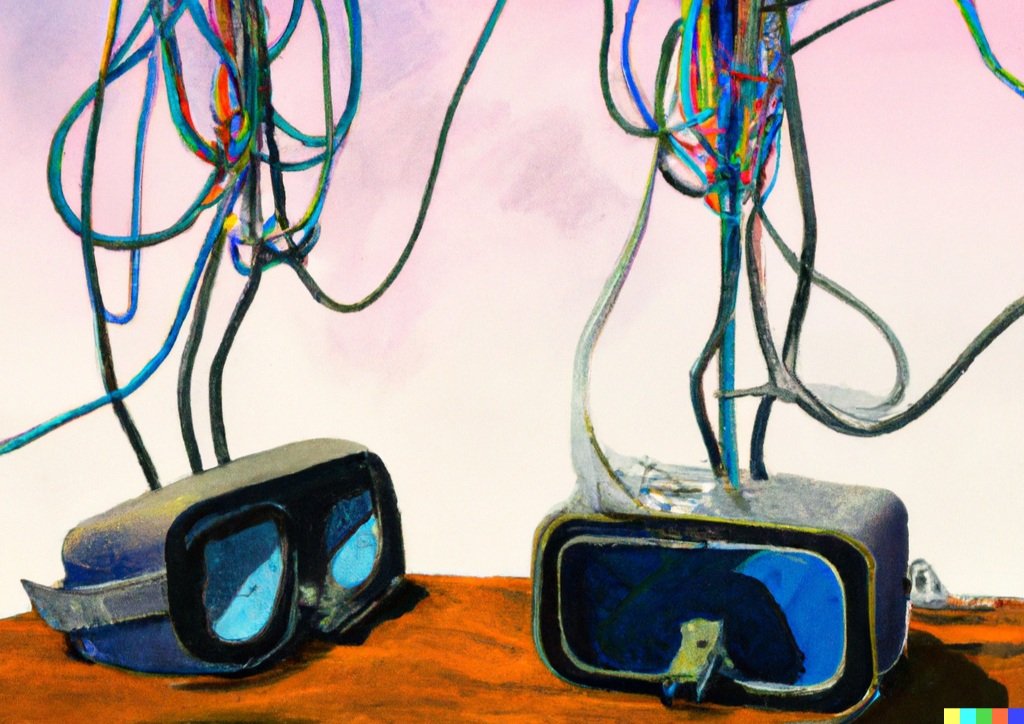EA Sports… It’s in the game. And well beyond it.
A quick briefing on OnlyFans in 2025, the UK’s most successful start-up since DeepMind
A 230-page presentation on the past, present and potential future of the video game industry.
Due to UK disclosure requirements, it's possible to examine the P&L of the privately owned/controlled OnlyFans. And the results are shocking.
With 380MM MAUs, Roblox probably counts more players than the entire AAA gaming ecosystem, is more played than Disney+ is watched, and is starting to rival smaller social networks in scale. But Roblox has yet to profit. How can it become a business comparable to its operating scale?
Nine thoughts on Apple’s own expectations and spend, what the Vision Pro has and hasn’t achieved, fair and unfair evaluations, and more after six months
Lessons on unexpected inspiration, UGC video games, and a four-decade quest to build the Metaverse.
Tim and Neal’s thoughts on the definition of the “Metaverse,” its technological and economic growth, Neal’s reaction on the day Facebook changed its name to Meta, the future of Fortnite, their thoughts on Apple’s Vision Pro, blockchains, and the ethics of Generative AI, plus “Snow Crash 2," and much more.
The box office is in trouble — again. And there’s little to learn from which desert action epic thrived, why Fall Guy fell short and Inside Out 2 opened bigger than The Incredibles 2. It’s just about time and change.
Thoughts on corporate strategy formulation in the “age of AI,” the messiness of these strategies, and lessons from the past.
What’s old is new again, but sometimes reinterpreted, distorted, or weighted with what came in between. What matters, doesn’t, and where most agree we’re headed.
Meta’s Reality Labs losses may be eye-watering, but such investments aren’t rare - and they’re looking increasingly essential to building (or disrupting) a billion user platform.
A free and chart-filled mini-book on where we are in the Streaming Wars, have been, and will go.
Thirteen years after XR devices became a big tech obsession, VR/AR devices are not just behind schedule, they still seem far away. Why?
An essay on trade wars, unexpected successes, and the once but not future kings of the big screen.
Why should anyone care about the metaverse? Expert Matthew Ball explains what it is, what it isn’t, and why it matters.
I adapted my book THE METAVERSE for TIME Magazine’s double issue cover story.
Why does Netflix want to enter gaming (beyond the money)? Why now? Can it succeed? What makes the category so uniquely challenging for the streaming giant?
Why is every media company now an “every media” company? What is it that audiences truly want? And what’s the most important goal for a franchise or IP?
An essay on platforms, power, prosperity, principles, and profits.
The content, business models, and health of every media category is driven by technology. And audio technology has never been so diverse and dynamic. After decades of struggles, audio is ready to grow, not just replace.
An essay on what Nintendo does and doesn’t want to be, why, and what this means for its future
A walk through of one of the most important, but least understood companies of the future.
Streaming content spend needs to be handicapped based on the ability of a network to create hits and a library of value. As a result, the gap between the biggest and smallest spenders is tighter than the topline numbers suggest.
We are years and hundreds of millions of dollars into the rise of esports, but most esports teams and start-ups are struggling (if still operational). And bad luck is rarely to blame.
An essay on theme parks, platforms, and the importance of hugs.
After decades of fan petitions and dreams, it’s clear that video game publishers, Hollywood, and general audiences are finally ready for gaming IP to be adapted to film and TV. Why now and what does this mean?
The most popular narratives hide the truth of competition, scalability, and monetization.
For millennia, the most popular stories on earth were epic tales of Gods and heroes. Five thousand years later, human culture remains similarly transfixed, albeit on a more modern epic: the Marvel Cinematic Universe.





























Cloud gaming is just one part of the future of games, but just as TV wasn’t a visual form of radio, the games built for cloud will look very different from the games of today. Introducing the MILE.